The landscape of cinema in 2023 was a testament to the resilience of the art form, bouncing back from the brink of obsolescence to once again capture the zeitgeist. It was a year that saw the continued blurring of lines between the streaming sphere and the grandeur of the cineplex, with movies like ‘Oppenheimer’ awaiting their streaming debut on Peacock, while ‘Barbie’ was instantly available, inviting us into its kaleidoscopic world from the comfort of our homes.
Each film released this year, from the high-octane adventure of ‘Spider-Man: Across the Spider-Verse’ to the fantastical escapades in ‘Dungeons & Dragons: Honor Among Thieves’, contributed to a larger narrative of cinema’s evolution. It was as if each story, whether it unfolded in the vastness of an ocean with ‘The Little Mermaid’ or within the confines of a kitchen in ‘The Holdovers’, was a microcosm of our collective journey through the year—a journey marked by reflection, connection, and a relentless pursuit of innovation.
10. The Killer
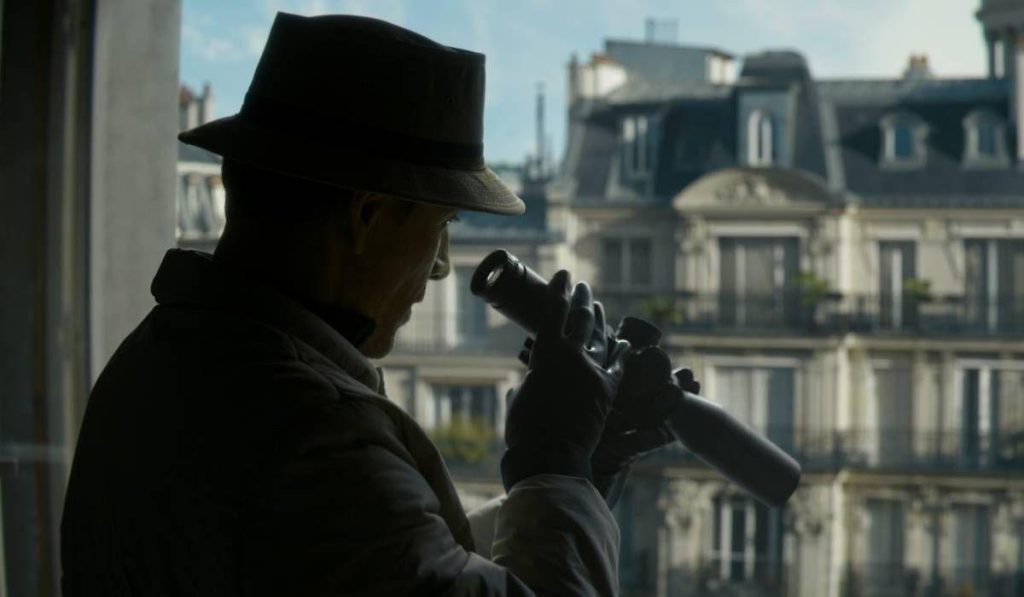
David Fincher’s “The Killer” is a riveting foray back into his signature world of suspense and psychological depth. Starring Michael Fassbender as an assassin, the film is a masterful adaptation of Alexis Nolent’s graphic novel, exploring the depths of a killer’s soul and the moral quandaries inherent in his life of violence. Fassbender’s portrayal is a blend of intensity and complexity, bringing a multifaceted depth to his character. Fincher’s meticulous direction, combined with Jeff Cronenweth’s compelling cinematography, creates a visually striking narrative that spans diverse global landscapes. The film’s aesthetic, oscillating between stark realism and noir, mirrors the assassin’s internal struggle.
The score by Trent Reznor and Atticus Ross adds a haunting layer to the movie, enhancing its dark, introspective mood. “The Killer” stands out for its focus on character development over action, delving into themes of isolation, morality, and the human psyche. Fincher’s approach leaves viewers contemplating the nature of violence and redemption, with an ending that is as thought-provoking as it is ambiguous. “The Killer” is a testament to Fincher’s ability to craft deeply engaging, visually stunning psychological thrillers.
9. Godzilla Minus One
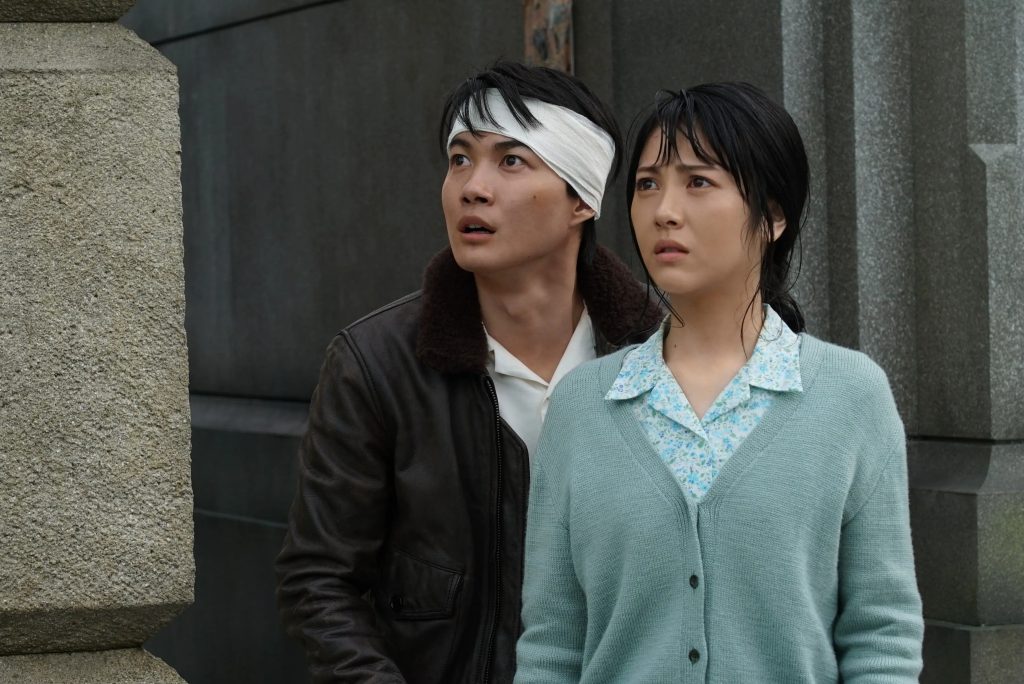
In the shadow of giants, we often find the most human of stories this is the essence of “Titans’ Echo,” a film that reinvigorates a classic titan of cinema with a poignant narrative pulse. This isn’t merely a spectacle of a behemoth trampling cities; it’s a testament to the echoes left by our own actions, the societal behemoths we grapple with, and the community’s spirit against the backdrop of chaos. The film strips back the layers of its colossal figure to reveal a narrative intertwined with humanity’s own struggle, reflecting our history, our present, and the potential paths of our future. The narrative weaves a tale of humanity’s resilience, the governmental machinations behind the scenes, and the communities that band together in the face of adversity, all while delivering the awe-inspiring spectacle that fans crave.
Where others in its genre have faltered, “Titans’ Echo” thrives, marrying the thrill of its kaiju legacy with the depth of a well-crafted drama. It’s a cinematic titan that respects its roots while carving out a new legacy, delivering both heart-stopping moments of destruction and heartrending glimpses into the souls of its cast. The film doesn’t just show us the monster; it shows us ourselves reflected in its wake our fears, our courage, and our indomitable spirit. It’s a blockbuster that doesn’t just explode across the screen but also resonates deeply within the viewer, a truly seismic shift in the landscape of monster movies.
8. Poor Things
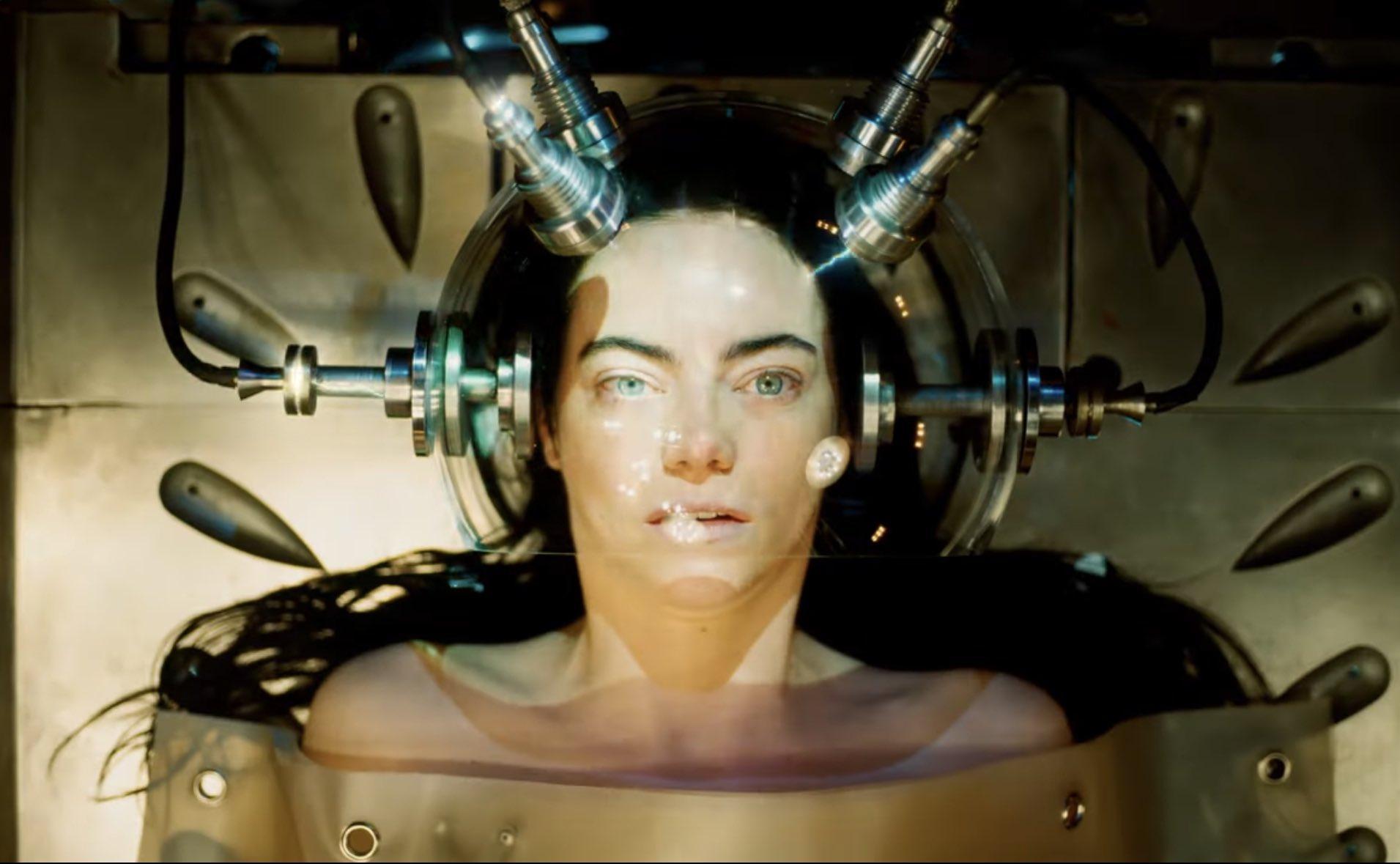
Poor Things is a film by Yorgos Lanthimos based on Alasdair Gray’s novel, starring Alba Baptista as Bella Baxter, a complex character with a child’s mind in an adult’s body. The story, set in Victorian-era Glasgow, combines surrealism and dark humor to explore themes of life, autonomy, and love. Mark Ruffalo plays Dr. Godwin Baxter, an obsessive scientist with a god complex. Lanthimos’s unique style results in a film that is both alienating and captivating, using gothic and whimsical elements to question existential themes and societal norms relating to femininity and identity. The supporting cast, including Emma Stone and Willem Dafoe, adds to the film’s exploration of human absurdities. The movie is an innovative mix of genre and style, encouraging viewers to think deeply while being entertained.
7. Past Lives

“Celine Song’s ‘Past Lives’ is a cinematic tapestry woven with delicate threads of emotion, exploring the intricacies of relationships and the what-ifs of life. The film is a masterclass in understated storytelling, with Song’s disciplined direction allowing each poignant moment to resonate deeply with the viewer. It’s a story that delves into the simplest yet most profound life questions, where the answers are as complex as they are impactful.
Past Lives stands out as an extraordinary debut, etching its mark in cinematic sub-genres with its nuanced portrayal of love, loss, and longing. The film captures the essence of New York City, creating a ‘What If?’ narrative that is both intimate and universal. It’s a tale of a woman coming to terms with her past and a man who embraces a new culture to connect deeper with his partner. The beauty of Past Lives lies in its ability to pose questions without demanding definitive answers, inviting the audience into a contemplative space. It’s a quiet yet powerful film, one that lingers in your thoughts long after the screen fades to black.”
6. Killers of the Flower Moon

Martin Scorsese’s “Killers of the Flower Moon” is a cinematic marvel, a testament to his undiminished prowess as a filmmaker. At 80, Scorsese embarks on a journey of ambitious storytelling, far from the beaten path of conventional cinema. This film, running at an epic 3.5 hours, is an intricate tapestry of history and human emotion, a narrative exploration that challenges the viewer while remaining deeply engrossing. Leonardo DiCaprio delivers a performance of great depth, but it is Lily Gladstone who truly captivates. Her portrayal is understated yet profound, bringing an authenticity that anchors the film’s emotional core. Scorsese’s commitment to the story and characters is palpable, making “Killers of the Flower Moon” not just a film, but an experience.
This is Scorsese at his most daring, blending crime drama with a poignant romance to craft a narrative both bold and tragic. The film’s meticulous attention to detail ensures that every moment is purposeful, delving into themes of greed, violence, and betrayal with a respect and sensitivity towards the Osage people. The ensemble cast, led by Gladstone’s standout performance, brings this complex story to life with an intensity that resonates long after the credits roll. “Killers of the Flower Moon” is more than a film; it’s a cinematic journey that beckons to be revisited, its powerful ending lingering in the mind. Scorsese, in his cinematic wizardry, delivers a work that is as educational as it is emotionally resonant, a masterpiece that reinforces his status as one of the greatest filmmakers of our time.
5. Air
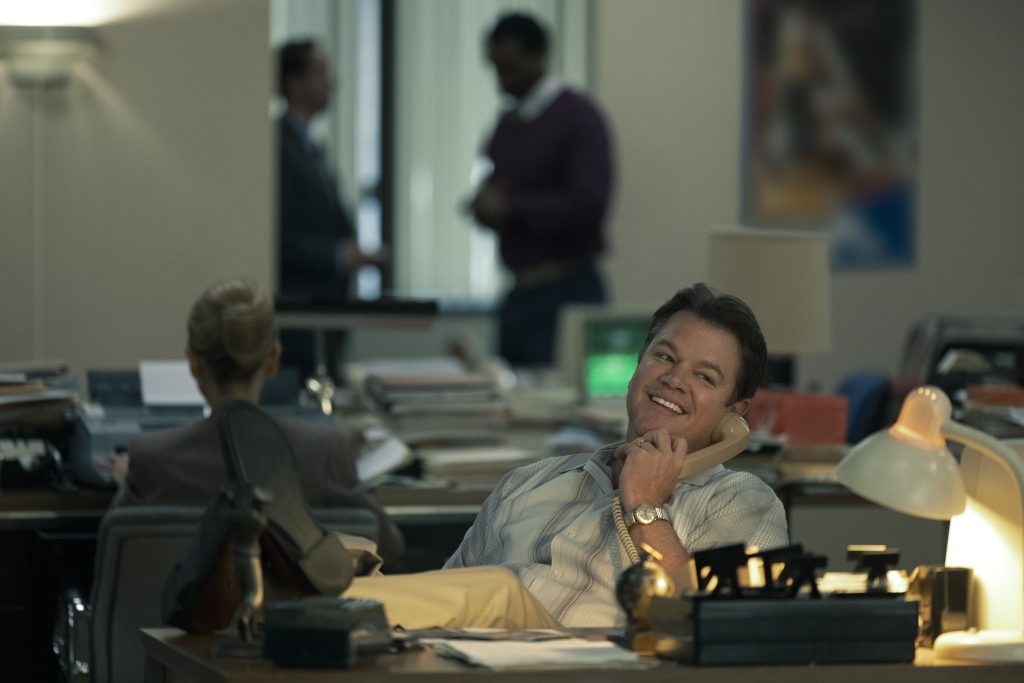
Air rises above the typical sports drama to deliver a touching ode to innovation, dreams, and the unbreakable human spirit. The film charms with its immaculate depiction of the intersection between the worlds of sports and business, while weaving a tale of passion, persistence, and the creation of an enduring legacy. Featuring commendable performances by a talented ensemble cast, Air shines a spotlight on the relationship between a visionary sports executive and a basketball legend. The lead actor embodies his character with an engaging mixture of nuanced ambition and raw determination, effectively transporting the audience back to the pivotal moments when sportswear history was being rewritten.
The direction is fluid and confident, guiding the narrative through emotional arcs and exhilarating milestones with equal grace. The film doesn’t just commemorate a cultural shift; it embodies the very ethos of trailblazing and innovation. The dialogues are sharp and impactful, contributing to the characters’ depth and the story’s overall emotional heft. Cinematography fluidly captures the essence of the grounded realism and the aspirational heights the film reaches for, mirroring the dynamic ebbs and flows of a game-winning shot. Coupled with a riveting score that accentuates every dramatic pivot, Air makes great strides in setting and maintaining the emotional tone throughout its runtime.
Air is commendable not only for its thoughtful representation of an athletic icon but also for its insight into the power of branding and its effect on popular culture. At its core, it presents the product—the iconic shoe—as more than just footwear, but as a vessel of dreams and a beacon for future generations to admire and aspire to. In summary, “Air” is not just a film for sports enthusiasts or sneaker fans; it’s a universal story that speaks to the dreamer in everyone. It’s a cinematic experience that reminds us why some stories are worth telling and how sometimes, it’s the things we put on our feet that help us take the biggest leaps.
4. John Wick: Chapter 4

“John Wick: Chapter 4” elevates the franchise to new heights, merging its trademark action sequences with a deeper exploration of its enigmatic protagonist. Keanu Reeves, reprising his role as the legendary hitman, delivers a performance that blends stoic intensity with a newfound emotional depth. The film’s choreography is a ballet of brutality, each fight scene more inventive and exhilarating than the last. Director Chad Stahelski crafts a world that is both expansive and intimate, pushing the boundaries of the action genre while grounding the story in Wick’s personal journey. The narrative weaves through a labyrinth of underworld politics and personal vendettas, maintaining a gripping pace that never loses sight of its central character’s arc.
Visually stunning, with a pulsating soundtrack that enhances the film’s relentless energy, “John Wick: Chapter 4” is not just an action movie; it’s a cinematic experience. It’s a testament to the series’ evolution, a thrilling ride that satisfies long-time fans and newcomers alike. The film leaves its audience breathless and eagerly anticipating what comes next in this relentless saga.
3. The Holdovers

The Holdovers emerges as a poignant and heartwarming journey, a film that resonates deeply with its audience through its exploration of love in various forms. The performances are a highlight, with Dominic Sessa delivering a breakout role, Paul Giamatti reminding us of his profound acting prowess, and Da’Vine Joy Randolph commanding every scene with ease.
The film’s true magic lies in its universal message about the human need for love and connection. This narrative about belonging and acceptance strikes a chord, making The Holdovers more than just a movie; it’s a reminder of the fundamental human experiences we all share. Its blend of emotional depth with a comforting, almost nostalgic charm, makes it a cinematic embrace, one that audiences find both relatable and necessary.
The Holdovers doesn’t rely on groundbreaking techniques or revolutionary storytelling. Instead, it excels in its simplicity and authenticity, crafting a narrative that’s both engaging and emotionally resonant. This film stands as a testament to the power of well-executed character work and storytelling that speaks directly to the heart. Its exploration of grief, depression, and loneliness is handled with a subtlety that adds to its impact, making it a memorable and deeply affecting experience.
2. Spider-Man: Across the Spider-Verse

Following the groundbreaking success of its predecessor, “Spider-Man: Across the Spider-Verse” swings into cinemas with impossibly high expectations. And it doesn’t just meet them—it soars above, flipping and diving through a kaleidoscope of animation styles with the dexterity and charm that make Spider-Man such an enduring character.
In this cosmic sequel, the ever-relatable Miles Morales returns, voiced with heartfelt sincerity by Shameik Moore. The story picks up where the first film left off, plunging Miles into an interdimensional adventure that expands the “Spider-Verse” into new realms. The multiverse concept gets a spectacular workout here as we meet an array of Spider-People from different dimensions, each with their unique spin on the iconic hero’s journey.
The animation is nothing short of revolutionary, blending different mediums to create a multilayered visual feast that is as thrilling as it is innovative. The film switches from the slick comic book aesthetic of the first movie to gritty noir, vibrant anime, and even whimsical cartoony worlds, without ever losing its narrative cohesion. It’s a visual symphony orchestrated by directors Joaquim Dos Santos, Kemp Powers, and Justin K. Thompson, who manage to keep the film’s eye-popping aesthetics in perfect harmony with its emotional beats.
The script, penned by Phil Lord and Christopher Miller among others, is woven with wit, humor, and gravitas. It expands on the themes of the first film—identity, responsibility, and belonging—while introducing fresh dilemmas for Miles as he confronts the reality of an ever-growing multiverse. The voice cast, including Hailee Steinfeld’s charming Gwen Stacy and Oscar Isaac’s enigmatic Spider-Man 2099, adds layers of depth to a narrative bursting with heart and soul.
“Spider-Man: Across the Spider-Verse” also features a soundscape to match its visual ambition. The score pulsates with a life of its own, threading through the film’s set-pieces with the energy and swagger befitting of its hero. It’s a film that understands the core of its source material’s appeal, the soundtrack amplifying every leap and punch with monumental zest.
The film manages the elusive task of being both a love letter to fans and an inviting embrace to newcomers. Its universal themes are expertly interlaced with Easter eggs and comic-book lore to satisfy the most ardent of fans. Yet, it’s the film’s emotional intelligence—its ability to capture the humanity at the center of the superhero spectacle—that makes “Spider-Man: Across the Spider-Verse” a truly transcendent piece of cinema.
In conclusion, “Spider-Man: Across the Spider-Verse” is a tour-de-force of animation, a narrative triumph, and a heartfelt continuation of Miles Morales’s journey. It’s a movie that promises to leave its audience in awe, proof that when it comes to storytelling and innovation, the ceiling is as high as the sky for this ascendant franchise.
1. Oppenheimer
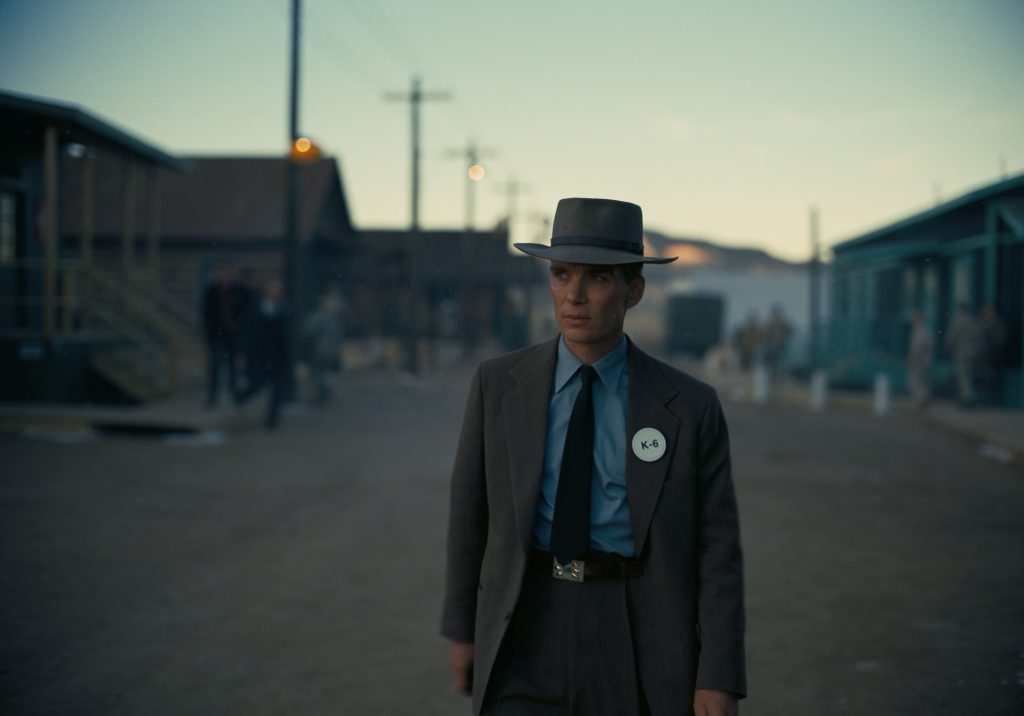
And at number one, with absolutely no surprise, is Christopher Nolan’s magnum opus, “Oppenheimer”. A film of such intricate layers and profound storytelling, it not only stands as the year’s best but promises to deepen in meaning and reveal new intricacies upon each subsequent viewing.
“Oppenheimer” is Nolan’s latest high-caliber foray into the historical drama genre—a meticulous and visually arresting examination of the man behind the atomic bomb. Cillian Murphy transforms into J. Robert Oppenheimer, delivering a powerhouse performance that captures both the brilliance and the burden of the renowned physicist. His portrayal is a complex tapestry of intellect, conscience, and emotional turmoil, laying bare the soul of a man wrestling with the cataclysmic impact of his own scientific breakthrough.
The film unfolds like a grand historical canvas, with Nolan’s direction ensuring a symphonic balance between the intimate and the epic. Nolan’s decision to shoot significant portions of the film using IMAX cameras translates to breathtaking visual poetry, each shot echoing the colossal nature of Oppenheimer’s work and its reverberations through history. The use of practical effects over CGI to re-enact the Trinity explosion provides an authenticity that resonates through the screen, leaving the audience in awe and reflective silence.
On first watch, “Oppenheimer” is a marvel of cinematic prowess, its narrative complex and propulsive. It is a masterful blend of narrative and spectacle, with an attention to historical detail that anchors its more explosive, cinematic moments. Yet, it is upon the second watch—and indeed the ones that follow—that the film truly reveals its intricacy. The subtly woven thematic threads, the character arcs carefully braided through the timeline of events, and the political undercurrents all begin to stand out in sharper relief.
Nolan’s screenplay, co-written with Kai Bird and Martin J. Sherwin (authors of the Pulitzer Prize-winning biography of Oppenheimer), further strengthens the film with dialogues that cut to the quick of nuclear politics and human morality. Each line spoken becomes heavier with implication as the viewer unravels the layers of narrative woven into each frame.
The score by Ludwig Göransson is yet another testament to the film’s depth. It not only accentuates the onscreen drama but seems to capture the zeitgeist of the era and the immense pressure upon those who held the power of the atom in their hands. It is equal parts foreboding and exhilarating, underpinning the film with an auditory resonance that enhances each viewing.
“Oppenheimer” is much more than a biographical account; it is an exploration of the human condition, a rumination on the ethical ramifications of scientific discovery, and a cautionary tale about the intersection of power, politics, and humanity’s most primal fears and ambitions.
In conclusion, “Oppenheimer” is a film that is not easily or fully grasped in a single sitting. It beckons the viewer back, promising richer understanding and deeper emotional connections each time the lights dim. It is both a challenging and rewarding experience, one that cements Nolan’s reputation as a visionary filmmaker and stands as a shining beacon in the cinematic landscape of 2023.
